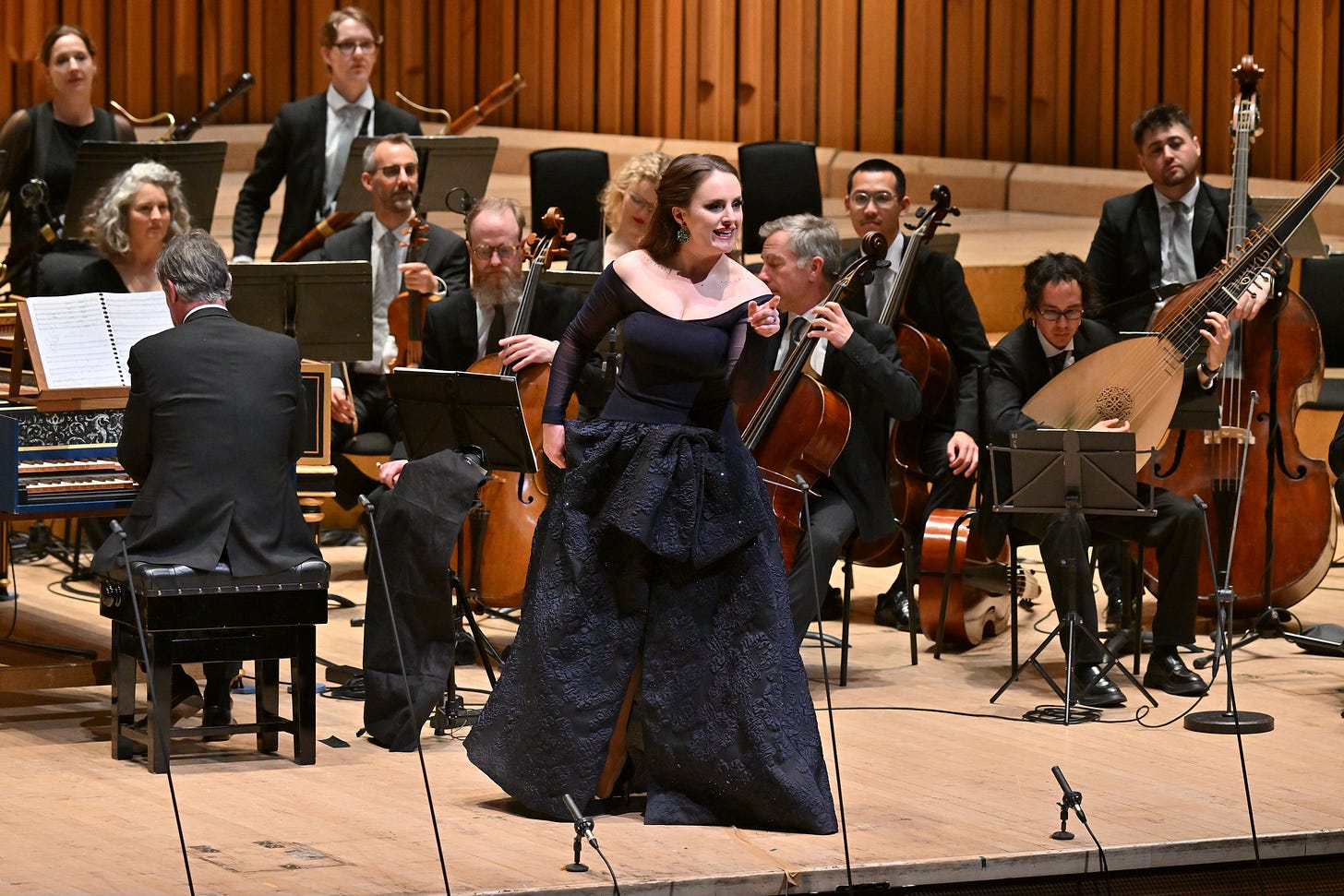Starry Handel Nights at the Barbican
Spyres and DiDonato sing Storgè and Jephtha, Alder dazzles as Cleopatra
Infinite variety: Louise Alder’s captivating Cleopatra Picture © Mark Allen
Handel’s greatest Italian operas are by now so embedded in the repertory that concert performances hardly seem necessary. Yet occasional airings of the music delivered in period style by outstanding Handel singers can still take the breath away. A concert performance of Giulio Cesare, one of the first of Handel’s so-called opera serie to enter the mainstream repertoire, can remind us what a genial inventor of three-dimensional characters and diverting music-theatre he was. Written in 1724 for an incomparable constellation of singers, Cesare is actually more of an heroic political comedy than a uniformly serious piece.
The English Concert, under the direction of master-Handelian Harry Bicket, is currently undertaking a Handelian Odyssey. Its project to film and stream all of Handel’s works on the orchestra’s website - ‘Handel for All’ - will surely be a lifetime’s work for most participants, but it acknowledges the huge strides the composer has made, not only in terms of scholarship and historically informed performance, but in the public’s appetite for his music, an astounding transformation since his tercentenary in 1985. In that year two seismic developments occurred: the Arts Council shut down the Handel Opera Society by withdrawing vital funding and English National Opera unveiled Nicholas Hytner’s new production of Serse (Xerxes in English) - a trailblazing event in every sense and one of ENO’s greatest ever hits (it was revived to public and critical acclaim for just short of three decades until 2014).
Fifty years on, Handel’s dozen best Italian operas and not a few of his English oratorios take their place beside the masterpieces of Monteverdi, Mozart, Verdi, Wagner, Puccini, Richard Strauss and Benjamin Britten in the world’s most sophisticated opera theatres.
Keep reading with a 7-day free trial
Subscribe to Operalogue to keep reading this post and get 7 days of free access to the full post archives.




